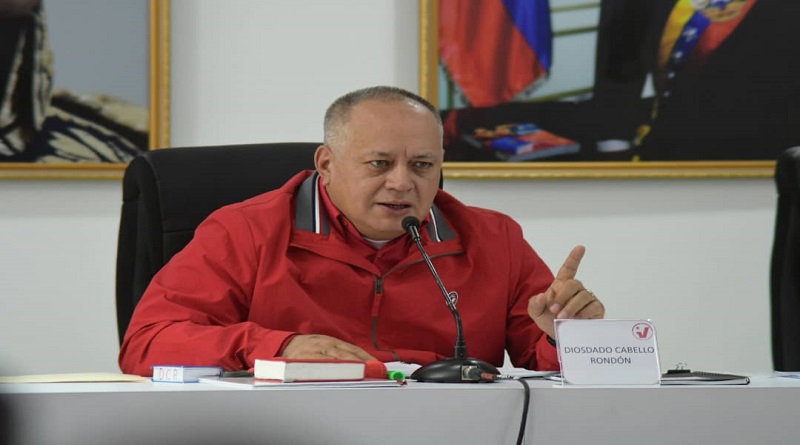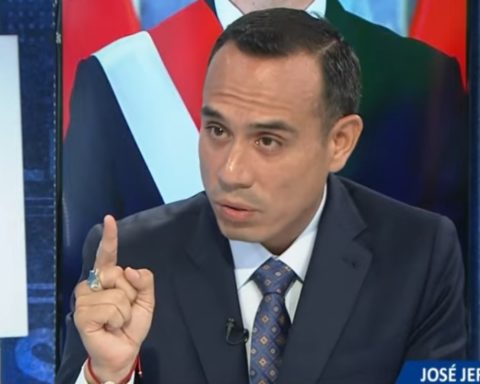The Minister of Economy, Martín Guzmán, reiterated this Monday his defense of the debt policy in pesosassured that it is “absolutely sustainable” and rejected the versions of a possible “reprofiling” of its maturities.
The head of the Palacio de Hacienda stressed the importance of reducing the fiscal deficit “in today’s Argentina” given the need to “order the State”, which is why he maintained that “Argentina’s financial capacity cannot be compared with that of the United States” to deal with imbalances.
“This that someone can come and redefine the debt in pesos is not credible,” said the minister.
In statements to Radio con Vos, Guzmán once again highlighted “the need to accumulate more international reserves”, and he recalled that, historically, in Argentina “when dollars were lacking, there was inflation”.
“What ends up defining the ability to grow is the amount of foreign currency that is available”added the official, in addition to highlighting the recent International Monetary Fund (IMF) statementin which it is pointed out that “the public debt in pesos is a pillar of the 30-month program”.
Guzmán remarked that “it is not by chance that the Fund says that,” and affirmed that this sign of certainty “It matters as much to Argentina as to international creditors.”
Likewise, he defended the authority of President Alberto Fernández, and remarked that “it is obvious” that the ministers do what the head of state orders.
“The President stated that there is an economic program and that progress is going to be made on that program; he leads and leads with authority and what the President has been saying is done,” the minister stressed.
However, he pointed out that “this does not mean that there are situations in which it would be valuable to be able to streamline the process,” referring to the delays in submitting the form to access subsidies within the framework of tariff segmentation, which, he assured, ” before July 1, it has to be there”.
“There are differences that have been made public and sometimes those differences do not allow expectations to be anchored, that is a problem”Guzmán said, while giving as an example the discussions that took place in 2021, for which “nobody ended up seeing the important tax order that was made, and that is worth a lot.”
On the eve of a new auction of public securities, the head of the economic portfolio sought to give a signal of calm to the market, and rejected any possibility of reprofiling by saying that “the debt is absolutely sustainable, to the extent that it can be refinanced” .
In this sense, he stressed the importance of creating a financing market in domestic currency, and argued that “debt in pesos is an anchor for the functioning of the entire system, a safe asset,” while at the same time “allowing this fiscal transition that It must lead to a balance.
As for fears about a growth in the level of that debt in pesos, warned that “in nominal terms, the debt grows throughout the world”, but at the same time “the collection also grows” and with it the ability to pay.
In this regard, he stressed that “in terms of product” the debt in the last year “fell a lot, about 30 percentage points.”
“Whoever governs Argentina governs, there will be no alternatives to strengthening the credit market in our own currency, the peso,” Guzmán emphasized, in addition to warning that “no one will want to create trouble with this matter.”
Likewise, he recommended taking into account both expenses and extraordinary income to make year-on-year comparisons of public accounts.
In this sense, he indicated that the behavior of spending cannot be analyzed “without taking into account that the fiscal policy of the second quarter had to be very expansive to deal with the effects of the war in Ukraine” and led to extraordinary expenditures for the reinforcement of income and the bonus to retirees.
“Without those components, the comparison would be different”, The minister warned, in addition to pointing out that when comparing income, it should be taken into account that last year the Solidarity and Extraordinary Contribution was calculated.
When asked about the differences within the Frente de Todos about the importance of reducing or not the fiscal deficit and the comparison with other countries, he specified that, unlike those cases in Argentina, “the State has to organize itself.”
“That is why it is important in today’s Argentina that the fiscal deficit be reduced, we cannot compare the financial capacity of Argentina with that of the United States,” Guzmán pointed out.


















